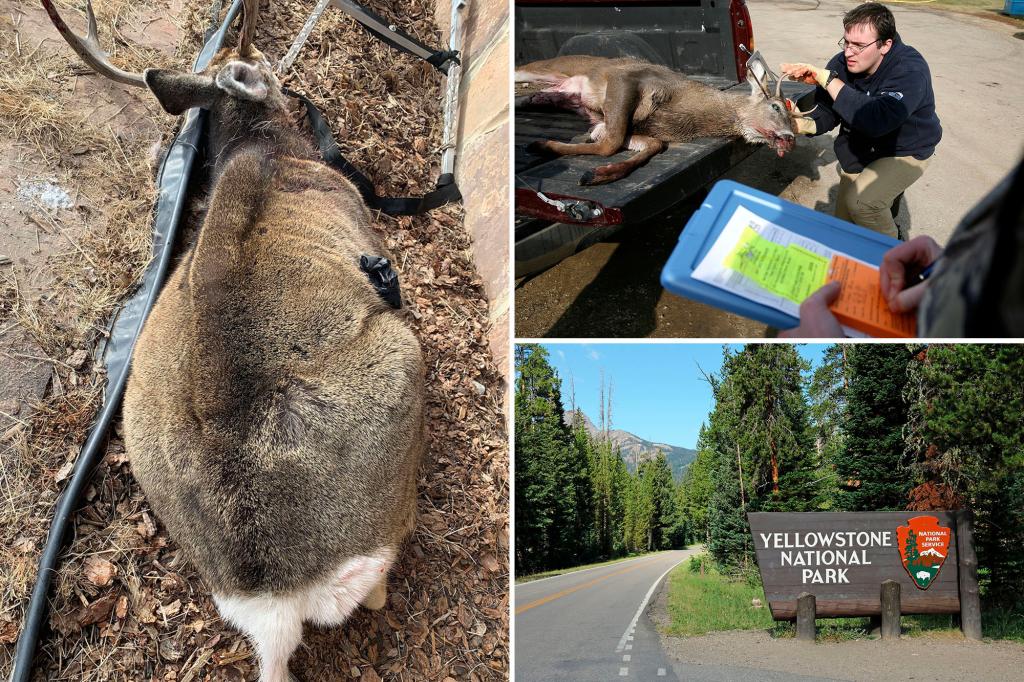
The geysers aren’t the only thing foaming at the mouth.
Yellowstone National Park officials are warning travelers to steer clear of wildlife after a “zombie” deer was found dead near Yellowstone Lake, a hotspot inside the heavily-visited natural landmark.
The deceased adult mule deer suffered from chronic wasting disease, or CWD, a contagious and fatal sickness that infects deer, reindeer, elk and moose, causing zombie-like symptoms including excessive drooling, drooping ears, head tremors, teeth grinding, and reluctance to move.
There is currently no vaccine or known treatment for the disease.
The deer, previously captured and tagged by the state’s Game and Fish Department (WGFD) in March, died sometime in October, according to its GPS collar.
Officials collected the carcass for testing at the Wildlife Health Laboratory where samples tested positive for CWD.
The rare disease has been detected in free-ranging and captive animals in at least 31 US states, two Canadian provinces, South Korea, and in Europe, where it so far has impacted reindeer and moose.
CWD has been spreading through Wyoming since the ’80s and currently infects 10 to 15 percent of mule deer in Wyoming, but has never before been recorded in the national park.
Animals can contract the disease through direct animal-to-animal contact, or indirectly by contact with an infected environment such as feces, soil or vegetation.
It can take more than a year for animals to develop symptoms and some animals may die without ever fully showing signs of the disease.
“The long-term effect of CWD on deer, elk and moose in the Yellowstone area is uncertain,” the National Park Serviced warned. Officials noted, however, that “there is currently no evidence that CWD can infect humans or domestic animal species.”
Still, experts warn that infected meat should not enter the food chain.
Officials plan to step up testing and monitoring efforts.
